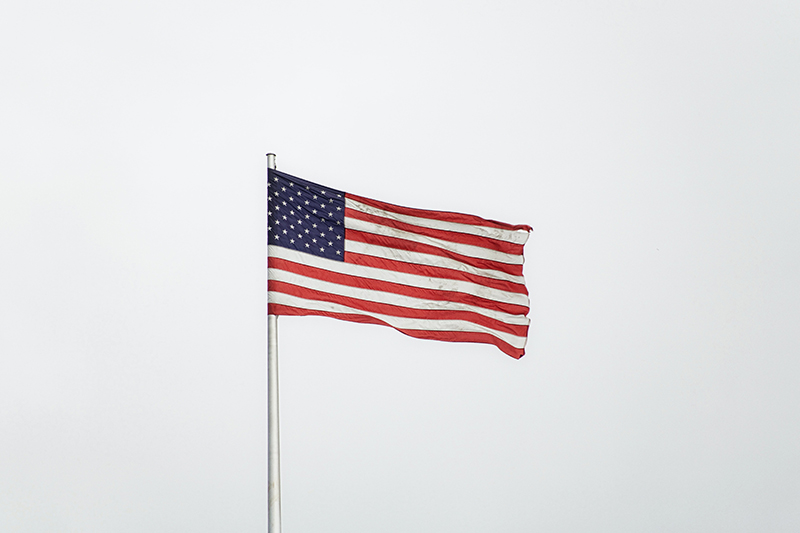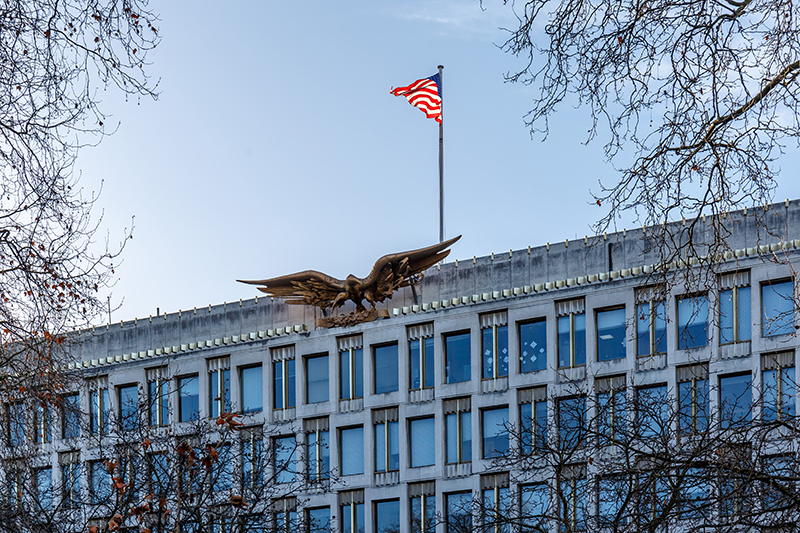The Importance of Maintaining US Embassy Security
The word “embassy” refers both to the officials representing the government in a foreign country and the building in which they operate. While this can be confusing from time to time, embassy security is crucial for the individuals involved as well as the success of their mission.
Delta Scientific recognizes the need to protect those who serve and has provided barriers and other access control products to many government facilities, including embassies to protect against vehicle attacks.
What Is the Purpose of an Embassy?
Essentially, the purpose of an embassy is to protect United States citizens as well as to promote US interests overseas.
US embassies perform analyses of social, economic, and political situations in the country where they are located, i.e., the “receiving country.” The goal is to gauge the warmth or coolness of general feelings toward the United States in the receiving country. The embassy may then consult with the receiving country in the interest of resolving any current or potential conflict.
For example, if tensions between the US and the receiving country are running high, the embassy may engage in diplomacy to try to prevent the conflict from escalating. Embassies also engage in economic negotiations to try to form trade agreements favorable to US businesses.

Knowledge Exchanges
Another aspect of the role of a US embassy is to promote understanding of the United States. To this end, the embassy hosts knowledge exchanges for society figures such as entrepreneurs, academics, and students from the receiving country. These exchanges help to forge ties between the current and future leaders of the receiving country and the United States.
Consular Offices
While a US embassy is different from a consulate, embassies typically include consular offices. These offices exist partly to help people from the receiving country undergo the necessary background checks and receive the proper documentation to travel to the United States, as well as to prevent those who are not eligible from traveling to the US.
In addition, consular offices in US embassies also provide assistance to citizens of the United States who are either living in the host country or traveling there. If American citizens run into serious trouble when traveling for purposes of tourism, education, or business, they can turn to the U.S. embassy in the country for help. For example, the embassy can help.
Are Embassies Foreign Soil, and What Does That Mean for US Embassy Security?
The embassy building and the land it stands on are the property of the sending country, in this case the United States. However, contrary to popular belief, an embassy is not an extension of the sending country. In other words, United States embassies are not US territory, nor are the embassies in the US considered foreign soil.
Nevertheless, the perception that an embassy is part of the territory of the sending country can make it a highly symbolic target for terrorism.
Why Are Embassies Frequent Sites of Terrorist Attacks?
Though not technically an attack on U.S. soil, an attack against a United States embassy is an attack against the principles and ideals that form our country’s foundation. Terrorists and militants may not be either willing or able to travel to the United States to launch an attack within its boundaries, so an embassy makes a convenient target.
In the past, embassies were relatively soft targets. However, recurrent attacks over previous decades have led to ongoing changes and updates to security strategies and embassy design. In some cases, such as after the 1998 attack on the U.S. embassy in Nairobi, Kenya, it was deemed necessary to relocate entirely to a larger tract of land where there could be more protective space between the buildings themselves and the perimeter fence protecting them.

What Needs To Be Considered in Embassy Security?
The level of threat to each individual embassy needs to be accurately assessed. Some embassies are at greater risk because they are in unstable countries or those that are hostile to the United States. Embassies in more stable regions do not face as much of a threat, although rogue terrorist cells are always a concern.
It is also important to know the type of threat an embassy may encounter. Embassies perform security checks of each individual visitor to make sure they do not have any firearms, explosives, or other potential weapons. There are certain prohibited items that people cannot bring into an embassy under any circumstances.
Vehicle attacks are also a concern. Terrorist groups have increasingly staged vehicle-ramming attacks against buildings and pedestrian areas for the better part of a decade. Therefore, it is reasonable to assume that they may use the same tactic against embassies, even if there have been no documented cases of vehicle ramming attacks against US embassies.
Delta Scientific offers products that can control traffic flow into the embassy. Beam barricades stop vehicles long enough for US embassy guards to verify the credentials of each visitor. Our highest-rated beam barricades can stop a fully loaded vehicle traveling up to 50 miles per hour.
Because of the devastating effects that a 15,000-pound vehicle can have when colliding with a human body, securing pedestrian areas is also necessary to embassy security. Bollards allow unimpeded foot traffic while preventing vehicles from entering areas reserved for pedestrians.
We offer bollards that are both highly crash rated and customizable to match the embassy’s aesthetic. Some visitors to the embassy may think that they are just part of the exterior decor and not realize that the bollards are there for their protection.
Why Should You Choose Delta Scientific for US Embassy Security?
For approximately 50 years, we have had a strong relationship with the United States government. We have worked with all branches of the military as well as other critical agencies, such as the Centers for Disease Control and Prevention, the Federal Bureau of Investigation, and the Department of Homeland Security. As a result, we have the experience that is applicable to US embassy security. Contact us to request a quote.
Sources:
https://www.renaca.ch/wasmacht-en.html
https://www.collinsdictionary.com/dictionary/english/embassy
http://www.cnn.com/WORLD/africa/9808/07/embassy.security/
https://www.wired.com/story/how-us-prepares-embassies-potential-attacks/
https://gr.usembassy.gov/u-s-citizen-services/passports/security-at-the-u-s-embassy/
https://diplomacy.state.gov/how-do-embassies-help-u-s-citizens/
Share This Story, Choose Your Platform!
